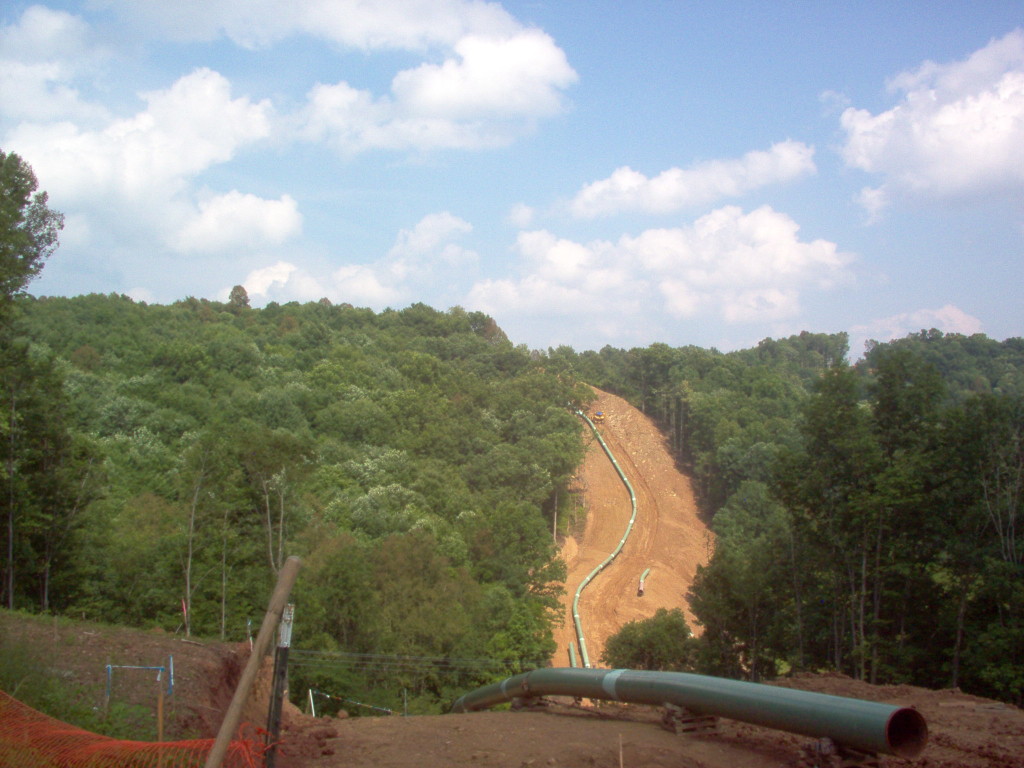There are actually a couple of reasons why your royalty checks are pretty small (relative to a couple years ago) right now. First, production from wells always decreases over time, second, the price of gas is down, third, the producer is probably taking post-production costs out of your check, and fourth, the producer is probably throttling back production from the well.
Side Note: if you think your producer is taking out post-production costs you should call the office and talk with us about it. We can probably force them to stop.
We’re going to focus on the second reason in this post, the price of gas. Prices are down for a couple of reasons. One is that there’s just way more gas available across the nation than there ever has been. A second reason is that the gas here in the Appalachian basin is…..stuck. It’s backed up. It’s constrained. Whatever you want to say, there’s just not enough transportation capacity for it all.
Because there’s not enough transportation capacity, you aren’t getting paid top dollar for the gas coming out of your property.
It’s not just that we can’t transport all the Appalachian basin gas to someone who will buy it, either.
The price of gas is set at the Henry Hub in Louisiana. The Henry Hub is a place where a bunch of pipelines come together and there’s a bunch of storage. Whatever gas is selling for at the Henry Hub is the benchmark price for gas in the United States. It changes constantly based on a huge number of factors.
Here in the Appalachian basin there are a couple of local hubs. Prices for gas are set at these hubs. They are based on the Henry Hub price, and then changed either up or down depending on local market conditions. Once upon a time we could sell gas for more than Henry Hub prices. It hasn’t been that way in a long time.
Because we’re producing so much gas we don’t have enough space for it all in the local hubs and other pipelines in the area. Because of that, gas sells at a discount to the Henry Hub price.
So not only can we not get all our gas into a pipeline in the first place, we also can’t get full price for it.
And that is one of the reasons why royalty checks have been relatively small lately.
Is there any hope for the future? Well, RBN Energy is doing a two-part series on pipeline buildout in the Appalachian basin. Here’s the first part, and the second part will be coming in the near future.
On top of getting a better price for our gas compared to the Henry Hub, we also need to start shipping gas out of the country for foreign markets to buy. Right now, 99% of the gas produced in the United States is consumed in the United States. That is changing rapidly, with the Sabine Pass LNG plant shipping its first cargo of LNG back in February of 2016, and with other plants coming online in the next couple of years. Once natural gas has become a world commodity we should be able to sell at a better price than we can get right now.


